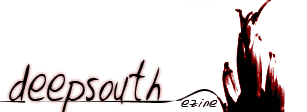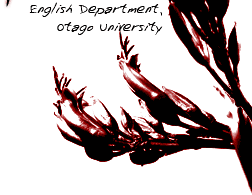Jared Angira uses verbal irony to depict the distinction between the ruled and the rulers and the consequences of this distinction in their daily existence:
I am the city itself
Where eyeballs roll
Floating
On the muddy pool
I am where swarms
Of jobless flock
The labour compound
Where they compound
Their labour unrest
Having rested all their lives
Where the commissioners store
Squadrons of reserve
Of flies and poverty
…
We are rally drivers
Driving sleek lancias
Swift ferraris
Durable Alpines (Cascades : 80-81)
This poem enunciates clearly the consequences of an inequitable distribution of resources. Robert Young remarks that, “…poverty and starvation, then are often not the mark of an absolute lack of resources, but arise from a failure to distribute them equitably …”(135). The poem aptly juxtaposes the wretched poverty of the unemployed and the affluence of the opulent. As Young suggests, the luxurious and expensive cars eloquently testify to the fact that the economic debility of the people is informed by the exploitative inclination of the rulers. The typographical arrangement of the poem amply testifies to the instability of the dire economic situation of the nation, bringing to bear the zigzagged nature of the economy. “Obbligato from the public gallery” articulates vibrantly the public frustration with the government’s deceptive sincerity towards the ruled:
The public has no belief
In democracy
It has mocked his expectations
The public has no hope
In the party;
The party partitioned his self (Cascades: 88) In “Canto on the oblong”, “A note to mother”, and other poems in Cascades, Angira creates with a bifurcating temperament in order to polarize society. He realizes this through verbal irony with which he illustrates the social stratification created by the unbridled greed of the leaders.
Syl Cheney-Coker’s “peasants” also captures the dismal plight of the masses and their abysmal loss of hope:
The agony of erecting hotels but being barred from them The agony of watching the cavalcade of limousines The agony of grand state balls for God knows who The agony of those who study meaningless rhymes in Incomprehensible languages The agony of intolerable fees for schools but with no jobs in sight (Concerto: 72)
The poem is polarized, one group shown as having access to the commonwealth while the other watches on as the former deplete their common resources. The refrain does not only help in re-establishing the lyrical ambience of the poem but emphasizes the dismal plight of the masses.
Frank Chipasula in “A love poem for my country” burns with pure rage:
I have nothing to give you, but my anger And the filaments of my hatred reach across the border And, you have sold many and me to exile Your streets are littered with handcuffed men And the drums are thuds of warden’s spiked boots You wriggle with agony as the terrible twins, law and order Call out the tune through the thick tunnel of barbed wire (5)
This poem is a forceful indictment of the administration of the late Kamuzu Banda of Malawi, whose regime was a threat to people who were audacious enough to criticize the government. The civilian population is subjected daily to harassment of different kinds. People are silenced in jail after protesting against the senselessness of the government. The poem wittily describes the strategies rulers employ to keep the ruled in a state of amnesia.
In Odia Ofiemun’s, “The New Brooms”, “Their Excellencies”, “The Messiah” and “National Cakes,” the sordid reality of the incompetence and administrative inertia of the military is blatantly displayed as they increase the yoke of the masses as they plunge deeper down the abyss of poverty created by the sacking of a democratic regime. With their simulated ergonomic policies coupled with their seraphic posture as redeemers, they feign sincerity in winching the masses from their calamitous state:
They are not doing a bad job The messiahs Are still riding high On the fervent winged horses On their triumphant entry The Christs Are still performing miracles In the market places Heralding the masses with imperative Feeding the hungry With 21-gun salutes For victories that are yet to be won (The Poet Lied: 10)
The poem is direct and terse, amply capturing the insolence of the government and lamenting the entire enterprise as a failed project. “Their Excellencies” does not only articulate the insensitivity of government to the predicaments of the people who continue to wobble in a zigzagging fate, but also mocks the insidious character of the regime.
page 1 2 3 4 5 6

